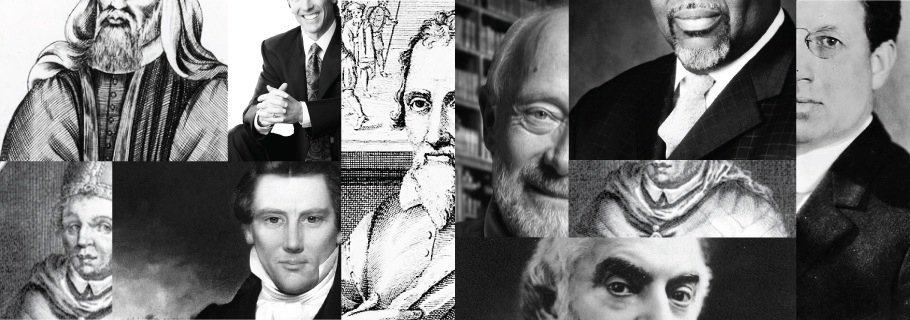This morning I am setting out on a new series of articles that will scan the history of the church—from its earliest days all the way to the present time—and pause to examine some of Christianity’s most notorious false teachers. Along the way we will visit such figures as Pelgius, Servetus, Fosdick, and even a few you might find on television today. We will begin this morning with one of the very first, and certainly one of the most dangerous, false teachers: Arius.
Arius
Arius is said to have been Libyan by descent, and he was probably born around 256 AD. We know little about his early days except that he studied under Lucian, the presbyter of Antioch. He later returned to Alexandria and became a presbyter there where he quickly became both prestigious and popular.
Arius’ difficulties began in 318 when he clashed with Alexander, the bishop of Alexandria. Alexander believed in the co-eternality of the Word of God while Arius taught that the Word was created by God. Because Alexander understood this as a dangerous threat to the church, he publicly condemned Arius’ teaching and removed him from all church posts. However, Arius refused to accept Alexander’s judgments and appealed to the people of the city and to other eastern bishops. In this way the dispute spread and became a severe threat to church unity. Seeing this danger, and wishing to avert division within his empire, Constantine called the first Christian council: the Council of Nicaea.
At the council, Arius’ teaching was formally condemned. The debate lasted from May 20 until June 19, at which point the council produced an initial form of the Nicaean Creed which explicitly affirmed the “begotten” position and condemned Arianism. All but two of the attendees voted in its favor and those two, along with Arius, were excommunicated and banished to Illyria. All of Arius’ writings were ordered confiscated and burned.
After being in exile for a decade, Arius sought to be restored to the church, and appealed directly to the emperor. Constantine became convinced of Arius’ return to orthodoxy and soon ordered Alexander, the patriarch of Constantinople, to reinstate him. Alexander was wary of letting Arius back into the church and, according to a letter by Athanasius, prayed that God would somehow prevent it. Very soon after this prayer, before Arius could be reinstated, he died.
In ancient times, Arius’ teachings presented the foremost threat to orthodox Christianity
Nathan Busenitz summarizes Arius’ impact in this way: “In ancient times, Arius’ teachings presented the foremost threat to orthodox Christianity—which is why historians like Alexander Mackay have labeled him ‘the greatest heretic of antiquity’.” His false teaching, coming as it did in the church’s infancy, truly did represent a grave threat.
His False teaching
Arius’ unorthodox position can be summed up very simply as “there was when he was not.” In other words, he held that God the Son is not co-eternal with God the Father. Instead, he believed that the Son was God’s first creation and that through him everything else was made (Colossians 1:15). This made the Son the only direct creation of the Father and thus unique among all creation as the first and greatest created being, but it also made the Father’s divinity greater than the Son’s. He argued that the opposing view, which would soon be officially established as the orthodox position, was incompatible with monotheism.
David F. Wright condenses Arius’ teaching on the nature of God to one short paragraph: “[T]he Father alone was really God; the Son was essentially different from his Father. He did not possess by nature or right any of the divine qualities of immortality, sovereignty, perfect wisdom, goodness and purity. He did not exist before he was begotten by the Father. The Father produced him as a creature. Yet as the creator of the rest of creation, the Son existed ‘apart from time before all things’. Nevertheless, he did not share in the being of God the Father and did not know him perfectly.”
Followers and Modern Adherents
While Arianism is a rare false teaching today, we do find it most prominently among the Jehovah’s Witnesses. Ryan Turner says, “Despite the best efforts of the Orthodox Church to stamp out Arianism, there are branches of the belief that continue to this present day. One of them is the Jehovah’s Witnesses. … Like the ancient Arians, these modern day Witnesses believe that Jesus is a created being who is therefore not eternal and not God.” To avoid the clear teaching of Scripture they modify their own translation of the Bible and argue that Jesus was Michael the Archangel.
What the Bible says
The Bible says that Jesus is co-eternal with God, uncreated, and in all ways completely divine. This is proven in a host of places in the New Testament. Among them are John 20:28, where Thomas exclaims to Jesus, “My Lord and my God,” Acts 7:59 where Stephen prays to Jesus, and John 10:30 where Jesus claims, “I and the Father are one.” Many more irrefutable proofs could be put forth.
Today, Orthodox Christians confidently proclaim, There are three persons in the one true and living God: the Father, the Son, and the Holy Spirit. They are the same in substance, equal in power and glory (New City Catechism, Answer 3).










